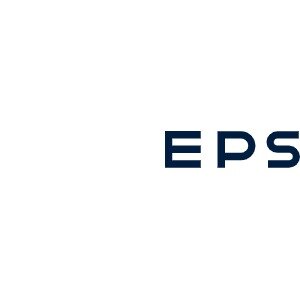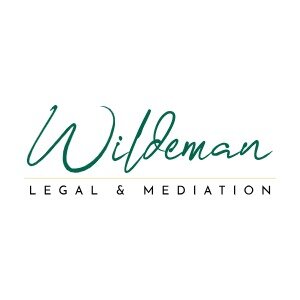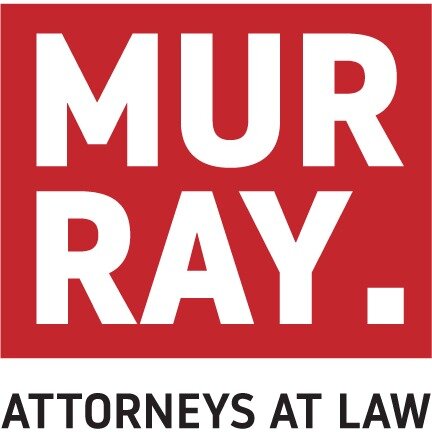Best Water Law Lawyers in Curaçao
Share your needs with us, get contacted by law firms.
Free. Takes 2 min.
Or refine your search by selecting a city:
List of the best lawyers in Curaçao
About Water Law in Curaçao
Water Law in Curaçao is a specialized field that governs the use, management, and protection of water resources on the island. Curaçao, being a semi-arid island in the Caribbean, faces unique water-related challenges due to limited freshwater sources and a heavy reliance on desalination. The legal framework addresses issues such as water allocation, quality standards, environmental protection, as well as the rights and responsibilities of both public and private entities. Water Law encompasses regulations on drinking water supply, wastewater treatment, water contamination, and responsible water use to ensure sustainable management of this vital resource.
Why You May Need a Lawyer
There are several reasons why individuals, businesses, or organizations might seek legal advice regarding Water Law in Curaçao:
- Disputes with water suppliers or utility companies regarding billing, service interruptions, or water quality.
- Compliance with regulations related to water use, waste disposal, and the discharge of substances into the environment.
- Legal issues concerning the development of real estate, tourism projects, or industrial plants that require significant water usage.
- Concerns over water rights and access, especially in rural or agricultural settings.
- Environmental concerns, such as water pollution or the impact of activities on marine and inland water bodies.
- Public health matters related to waterborne diseases or unsafe drinking water.
- Representation in administrative proceedings or litigation involving government authorities or private parties regarding water-related issues.
Local Laws Overview
Curaçao's Water Law framework is shaped by both local statutes and international obligations given the island's status as a constituent country within the Kingdom of the Netherlands. Relevant laws and regulations include:
- Regulations governing drinking water quality, generally enforced by the Ministry of Health, Environment, and Nature.
- Rules related to water utilities, predominantly the monopoly supplier Aqualectra, which manages desalination plants and rationed distribution.
- Provisions relating to the disposal and treatment of wastewater, under the oversight of the Ministry of Public Health and the Curaçao Wastewater Management Authority.
- Environmental protection regulations establish requirements for safeguarding marine and freshwater environments against pollution from industrial and domestic sources.
- Permitting requirements for wells, groundwater extraction, and large-scale infrastructure that impacts water resources.
- Provisions that relate specifically to drought management, water rationing, and conservation measures in times of water scarcity.
Compliance with these laws is essential, and violations may result in penalties, enforcement actions, or even criminal prosecution.
Frequently Asked Questions
What is considered a violation of Water Law in Curaçao?
Common violations include unauthorized use or extraction of water, illegal dumping of waste into water bodies, and failure to comply with water quality standards.
Who regulates water supply and quality in Curaçao?
Aqualectra is the main water supplier, while regulatory and enforcement roles belong to the Ministry of Health, Environment, and Nature, as well as the Public Health Inspectorate.
What should I do if I believe my tap water is unsafe?
Contact Aqualectra and the Public Health Inspectorate immediately. You may request water quality testing, and if unresolved, seek legal advice on consumer protection and health safeguards.
Are there restrictions on digging private wells or extracting groundwater?
Yes, private wells and groundwater extraction require permits from the government. Unauthorized drilling or excessive extraction can lead to legal action.
Can businesses or developers use large volumes of water for projects?
Businesses must apply for permits if their operations may affect water resources. Environmental impact assessments may also be required to ensure compliance with Water Law.
How does Water Law address droughts and water shortages?
During droughts, the government may implement rationing measures and enforce conservation laws. Legal frameworks provide for penalties in case of non-compliance.
What are the penalties for polluting water sources?
Penalties can include fines, mandatory cleanup, suspension of operations, and in severe cases, criminal charges depending on the nature and impact of the pollution.
Do agricultural activities require special permission for water use?
Large-scale agriculture generally requires permits for irrigation, particularly if it involves groundwater extraction or the use of public water supplies.
What rights do residents have if a water utility cuts off supply?
Residents have consumer protection rights and may seek investigation by regulatory authorities. Persistent problems may be addressed through legal channels.
How can I challenge a government decision about water permits or enforcement?
You have the right to file an administrative appeal or seek judicial review through the courts, ideally with the assistance of a Water Law attorney.
Additional Resources
Several organizations and governmental departments can offer guidance or support related to Water Law in Curaçao:
- Ministry of Health, Environment, and Nature
- Aqualectra (Water and Electricity Utility)
- Inspectorate for Public Health
- Curaçao Wastewater Management Authority (CUMAB)
- Environmental NGOs such as GreenKidz or Carmabi Foundation
- Local bar association for referrals to legal professionals with water law expertise
Next Steps
If you suspect you need legal assistance relating to Water Law in Curaçao, consider the following steps:
- Document your concerns or disputes clearly, including correspondence or invoices related to water services or regulatory actions.
- Contact the relevant agency or utility to try to resolve the issue administratively if possible.
- Consult with a lawyer who specializes in Water Law to evaluate your rights, responsibilities, and potential legal remedies.
- If your issue involves environmental or public health risks, seek immediate advice from the Ministry of Health, Environment, and Nature.
- Prepare to participate in mediation, negotiation, or legal proceedings if a resolution cannot be reached amicably.
Seeking early legal advice can help you understand your rights, comply with regulations, and achieve the most favorable outcome in Water Law matters in Curaçao.
Lawzana helps you find the best lawyers and law firms in Curaçao through a curated and pre-screened list of qualified legal professionals. Our platform offers rankings and detailed profiles of attorneys and law firms, allowing you to compare based on practice areas, including Water Law, experience, and client feedback.
Each profile includes a description of the firm's areas of practice, client reviews, team members and partners, year of establishment, spoken languages, office locations, contact information, social media presence, and any published articles or resources. Most firms on our platform speak English and are experienced in both local and international legal matters.
Get a quote from top-rated law firms in Curaçao — quickly, securely, and without unnecessary hassle.
Disclaimer:
The information provided on this page is for general informational purposes only and does not constitute legal advice. While we strive to ensure the accuracy and relevance of the content, legal information may change over time, and interpretations of the law can vary. You should always consult with a qualified legal professional for advice specific to your situation.
We disclaim all liability for actions taken or not taken based on the content of this page. If you believe any information is incorrect or outdated, please contact us, and we will review and update it where appropriate.
Browse water law law firms by city in Curaçao
Refine your search by selecting a city.













